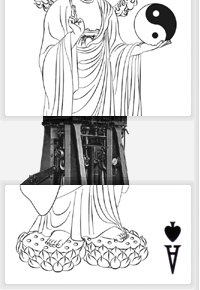Mr. Spencer's Article, entitled ""China is Blind to the Hostility It Can Arouse," published in the Telegraph on March 26, 2008, is available at: http://www.telegraph.co.uk/opinion/main.jhtml?xml=/opinion/2008/03/26/do2602.xml&posted=true&_requestid=258457. My Comments are posted under the name Bismarck.
I advanced a set of Comments on his Article, because it seems to typify certain modes of thinking that are scarecely examined in public discourses, whenever questions regarding human rights, protests, government reaction, and media reporting are raised. The notion of a "do-gooder impulse" is not proposed to vilify every attempt at defending the good; it is made to highlight, nonetheless, a certain moral dimension to the act, when doing good seems a very straightforward thing. - Bismarck, Mar.26, 08.
COMMENTS:
1. The Chinese people might not be very adroite in speaking the language of human rights - compared with Westerners well-versed in the art. But many in China, having access not only to the official version of things, but also to reports by certain media in the West, cannot fail to wonder, e.g., Why are the human rights of those 5 female workers burnt to death in Lhasa less worth the being made a subject of international concern, than the human rights of 15 monks said to be arrested by the Chinese Government, facing as they might torture etc.? Is it the case, that in the eye of such organizations as the Amnesty Internaitonal, people do not have the same human rights - lives are not equally deserving protection, and violent deaths not equally deserving condemnation - but these whose suffering seems to FIT certain Western perceptions of the rest of the world will be HIGHLY PUBLICIZED, while those whose suffering is not, will simply be GLOSSED OVER?
2. If so, then the DISCOURSE, not the ideal, of human rights becomes less than innocent. And in the present controversy - some call it a media war - it is THIS sort of selective reporting and publicizing, serving as it does to CONFIRM a certain image of China in many Western minds, that has irritated so many Chinese netizens.
3. It is imperative that such respectable writers as Mr. R. Spencer stop writing this way:"Since the protests began, many Chinese have turned on the Western media for misrepresenting the troubles. That is hardly surprising: at times of disaster, it is important to find someone to blame";as if all that Chinese netizens can do were to find scape-goats. This is as condescending as it is trivializing. Mr. Spencer must have, I dare say, hardly thought of saying that "it is hardly surprising that in such a crisis each and every Western medium would rush to vilify a communist regime, regardless of what has happened on the ground; for it is the West's perennial need to justify its DO-GOODER IMPULSE and righteous anger."Mr. Spencer would not write this way, because this is simply not part of his frame of mind. But why?
4. Mr. Spencer is not anti-China, as far as I can tell from this article. But the way he approaches the media war shows how easy it is, for a Western observer of China, tacitly to adopt, in a time of controversy, the mode of thinking quite dominant in many quarters in the West. This is no trivial matter. One might even do a thorough study on it.
5. The DO-GOODER IMPULSE is a very tempting thing. The image of Truth speaking to Power is, via textbooks and classroom discussions and public discourses, so ingrained in the mind of many Westerners, that they become very used to deploying that FRAME whenever something critical happens somewhere in the world. There are then always the good protesters and the bad government. How about mobs interrupting the otherwise good protest? Well, never mind: everything non-governmental is good, or near good, or, if bad, it must be excusable. Now, once you have this FRAME, it becomes trivially easy, and tremendously tempting, to take the next step: Support the good!
6. The 5 female workers in Lhasa had the bad fortune of not having died "in the name of" the good. They were innocent, to be lamented, etc., but just not that sort of good that would drive many Westerners to support the Chinese Government's measures. But why? Why is it so difficult to establish this psychological LINK? Well, I for one would say, that it has something to do with the human rights discourse ITSELF, however noble it otherwise must be.
7. The German girl holding a sign with the English words "China: Will You Shoot Me Too?" has probably never put herself in the position of the 5 female workers burnt alive, or of those who had been scared to death in the first 48 hours of the riot. Why not? Why is it so difficult for this German girl to think this way?
8. An article on these questions by Mr. Spencer would be most welcome.
Comments on an Article by Richard Spencer in the Telegraph
標籤:
Y.T.
訂閱:
發佈留言 (Atom)



1 留言:
看來中國沒有從1989年處理「動亂」的失敗中,學到改善的手法。
最令人心寒的是在網上見到大陸人民對今次事件的大中國思想。
發佈留言